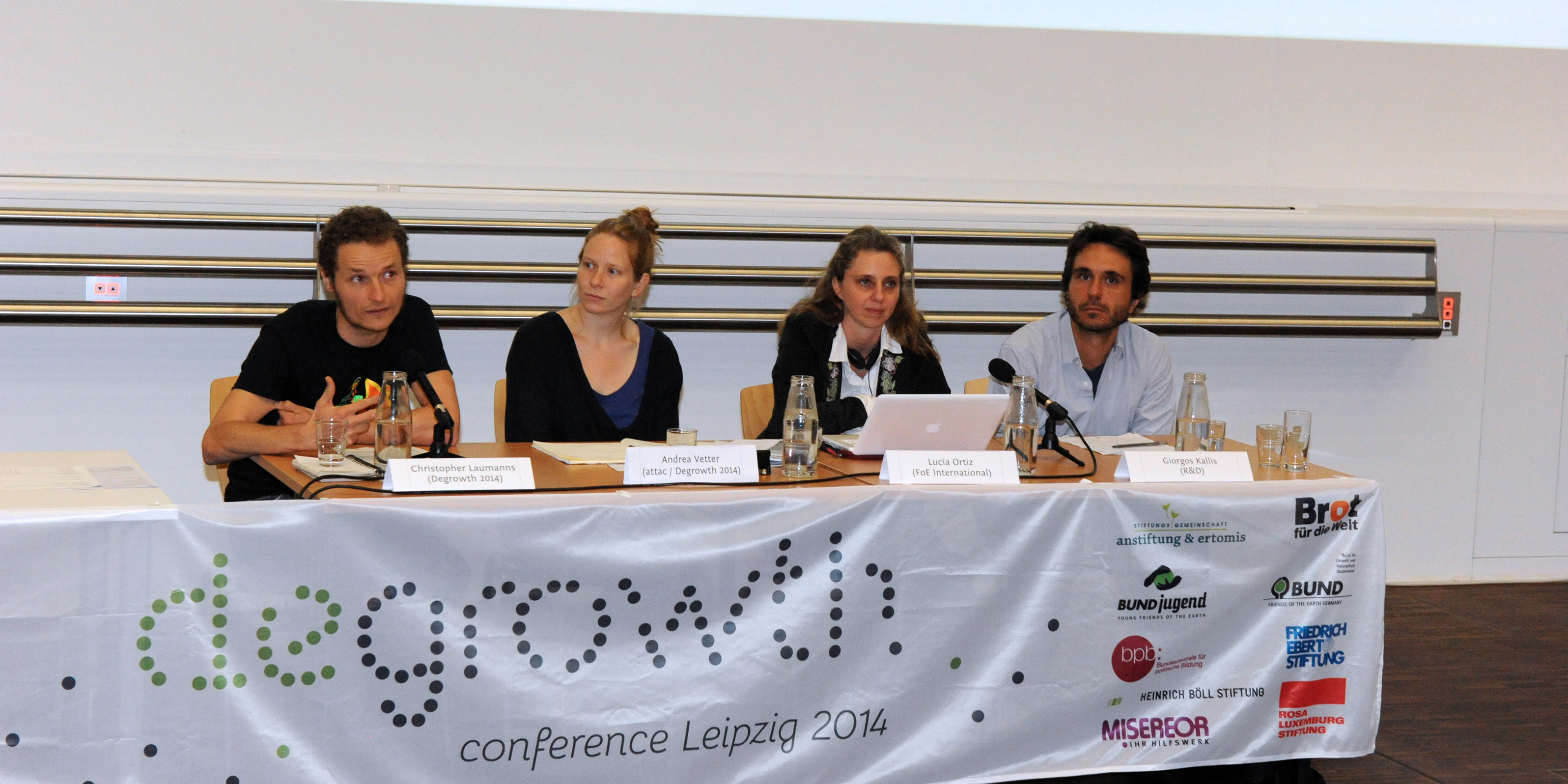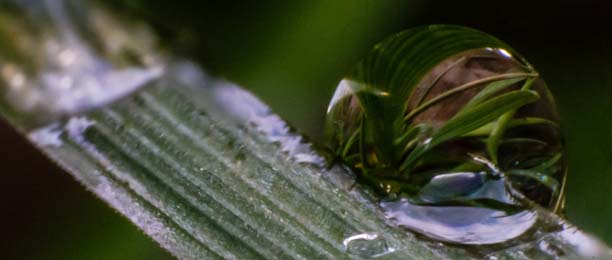Every day we are bombarded with frightening news. But how do we personally feel about them and how can we deal with them as society as a whole? Which future do I actually want for myself, for the world and for my children? And how are my personal feelings and motivations connected to the larger picture? What frightens me, what makes me angry and how can I transform these feelings into a source of power and energy for change? These and many other questions are at the center of what´s called "Deep Ecology" or "The Work That Reconnects".
What is Deep Ecology?
The term Deep Ecology was coined back in the Seventies by the Norwegian philosopher and environmental activist Arne Naess. In her book
Coming Back To Life American activist and system theorist
Joanna Macy describes it this way: "What does it mean or matter to be interdependent with all Earthly life? In exploring this question, deep ecology arose, both as a philosophy and a movement. (...) In contrast to reform environmentalism, which treats the symptoms of ecological degradation - clean up a river here or a dump there for human benefit - Deep Ecology questions fundamental premises of the Industrial Growht Society. (...) Often expressed as biocentric, this perspective holds that we must break free from the species arrogance that threatens not only humans but all complex life-forms within reach".
With this, Naess aimed at developing something he called "ecological self", a kind of wider identity which, starting from the people closest to us, draws ever widening circles until it includes the whole Earth with all its beings.
On the basis of holistic science, psychology and spiritual traditions Joanna Macy has enriched this theoretical concept with practical exercises. "The Work That Reconnects" as she calls it now, not only wants us
understand, but also
experience that everything is interconnected. Such experience can give us hope and empower and inspire us to courageous collective actions, as Macy has experienced with thousands of people all over the world.
The time of the "Great Turning"
Macy conciders our contemporary time the time of the "Great Turning" in which humanity faces unprecedented challenges: Threats such as climate change, biodiversity loss, the degradation of forests and soil, ocean acidification, poverty, wars and increasing social conflicts show us: the world as we knew it is coming to an end and even humanity might go extinct, if not complex life on Earth as such.
At the same time we have enough knowledge, technologies and opportunities to turn human civilization "from the Industrial Growth Society to a Life-Sustaining Society". New insights from e.g. system theory and quantum physics disprove the mechanistic worldview and confirm old spiritual wisdom: that the world consists of a network of relationships and living systems which are all connected by flows of energy and information. A network that has developed in more than four billion years of Earth history, constantly refined over millions of years, with an immense self-regulation capacity which we can support and which supports us.
The power of shifting perspective
This is why Macy sees our current systemic crisis mainly as a crisis of consciousness: As long as we perceive ourselves as separate individuals seperated from the world and from each other, and view our life-experience only in relation to the Industrial Growth Society, we feel helpless and frightened and can hardly imagine any solution outside it. When we perceive ourselves as part of the living eco-system "Earth" though - with its billion years long history - we can see the Industrial Growth Society as what it is: only a glimpse in the timeline of evolution, despite its destructive power.
Once we experience ourselves as inseparable part of the web of life we realize that true well-being for us can only happen in harmony with the whole and all of its parts. When other humans or living beings suffer, we cannot stay untouched. This is what Arne Naess meant when calling for an "ecological self".
Why do we know so much and do so little? Emotions as guides
According to Macy, deadening and numbing what she calls "our pain for the world" is one of the main causes for the contradiction between human
knowledge and human
action or, more scientifically, our
cognitive dissonance. Just as body-pain is a vitally important feedback to keep us from doing damage to ourselves or others, emotional pain is an equally important type of feedback for us and the people around us. When we suppress this pain or distract ourselves from it, the whole web of life is cut-off from information vital for its self-regulation. Moverover we cut off our own creativity and vitality either, since deadening or numbing doesn´t work in one direction only but includes the whole scale of our emotions.
Deep ecology in turn opens spaces to feel and share all our inner reactions to the state of the world and to experience that they don´t break us but make us stronger. Slowly a new consciousness for the whole can emerge which makes us take on responsibility for ourselves and what is happening in the world.
Which story do I want to tell?
In order to find our own role in these times of change it can be helpful to keep asking which story I actually want to tell and pass on with my life. Story in this sense does not mean a fictional tale but the way we set our expieriences and observations in a larger context of meaning. What our imagination of the future is concerned, Macy has identified three main stories that are happening in parallel, depending on the taken perspective:
1) Business as usual
This story is the story of the Industrial Growth Society. It confirms the pleasantness of modern life and does not question that it can go on forever. Progress is measured in material consumption. We hear it from politicians, business schools, corporations, advertisement and media. It is based on the following assumptions:
- Economic growth is a precondition for prosperity
- Nature is mainly a source of raw materials which can be exploited by humans
- Fostering comsumption is good for the economy
- The main purpose in life is to get ahead
- The problems of other people, nations and species do not concern us
2) The great unraveling
This story confirms the threats we are exposed to and focuses on looming catastrophes. It is being told by scientists and organizations concerned about the social and ecological consequences of our civilization. It mainly talks about
- Economic decline
- Resource depletion
- Climate change
- Social divide and wars
- Mass extinction of species
These two stories contradict each other and draw totally different pictures of the world. Business as usual, however, takes us on confrontation course with reality and immediately leads to the great unraveling which feels like a horror-story that makes us feel small and powerless. But luckily, there is still a third story going on Deep Ecology wants to help unfold:
3) The great turning
This story is told by the countless groups and initiatives in various fields that are striving for a new socially just and ecologically sustainable culture. They daily increase in numbers and size, but we can only perceive them when we step back and direct our focus on them instead of getting lost in seemingly separate events around us.
This story empowers us, especially when we keep in mind that many little changes can interact with each other to set in motion unpredictable groundbreaking transformations. One recent example for such disruptive change is the fall of the Berlin wall back in 1989 which nobody had expected.
What is my story?
Which story do I personally feel associated with? Do I always act accordingly or do I follow different stories, depending on the situation I am actually in? Am I conscious about these contradictions and can I do more to further identify with the story of the great turning?
Deep Ecology wants to empower people to become part of this story and find their individual role in it with their personal talents, dreams and other strengths. It is neither an ideology or dogma, nor does it hold readymade solutions. Just like the degrowth-movement, it rather encourages people to join the collective quest for the good life for all on a healthy planet.
To close with the words of
Albert Einstein: "A human being is part of the whole called by us "Universe"... a part limited in time and space. He experiences his thoughts and feelings as separate from the rest - a kind of optical delusion of his own consciousness. This delusion is a prison for us restricting us to our personal desires and to affection for a few persons nearest to us. Our task must be to free ourselves from this prison by widening our compassion to embrace all living creatures and the whole of nature and its beauty."

